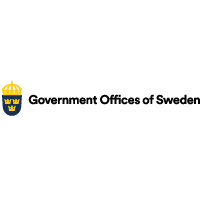
Dear Assistant Director General,
Dear Excellencies, Colleagues,
Dear friends sharing my interest and passion for culture,
It is my great pleasure to be with you here today as we launch the third edition of the UNESCO global report: Re:Shaping Cultural Policies for Creativity, addressing culture as a global public good.
The report at hand is unique in its kind. In this report, data points out emerging trends in cultural policies at a global level and suggests recommendations to foster cultural and creative ecosystems. It is the only global report that provides an overview of cultural development world-wide. At the same time, it monitors state action to protect and promote the diversity of cultural expressions. This report isn’t just another report.
A report like this takes commitment, ambition and frankly – a lot of hard work. Therefore, I would like to extend my heartfelt thanks to ADG Ottone and his entire team at UNESCO.
As Minister for Culture in Sweden, I am very proud to represent a Government that puts artistic freedom and gender equality at the top of the agenda.
It is my hope and conviction that this report will help us all make better decisions. And better, informed decisions are something the global community especially needs at this point in history. The past two years have been very tough. Not least for people working with culture. We have seen cultural institutions closing down, artists and cultural workers losing their jobs, and in some cases, artists being deprived of their social and economic rights.
At the same time, we as citizens, communities, and decision makers, have been reminded of the importance of Culture for our wellbeing. The importance of culture for society is fundamental especially in times of crises, worries and sorrow.
The right to freely participate in the cultural life of the community and to enjoy the arts is manifested in the universal declaration of human rights. This right is accompanied by the right to freedom of expression, including artistic freedom, and freedom of information and communication.
The important role that culture plays in society, the intrinsic value of culture and the importance of a diversity of cultural expressions cannot be underestimated, in particular not when recovering from the pandemic.
This report includes data from what we have experienced during the pandemic. We can use this data to learn and, in turn, enhance the implementation of the 2005 Convention. This data will be crucial.
The monitoring framework of the 2005 convention puts a particular focus on gender equality and artistic freedom.
Gender equality, freedom of expression and artistic freedom are key dimensions when promoting human rights and protecting fundamental freedoms. Equality creates creativity, and creativity is the foundation of a thriving culture.
I was very pleased to read in the report that gender equality is increasingly being recognized as a priority for the cultural and creative industries. At the same time, many challenges still remain.
A worrying trend shown in the report is that attacks on freedom of artistic expression continued to rise in 2020. On the other hand, we can see that labour protection has been improved in many parts over the world, for example through ensuring social welfare for artists.
Global problems call for global solutions. We know the challenges, but we also have the tools for change. Multilateral cooperation is more important than ever.
Therefore, I would like to call on the global community to increase public investment in culture, at a national level as well as at a global level. We cannot stay on the same path as we have done for the last ten years where public investment in culture has been on constant decline.
Culture is key to achieving the sustainable development goals set out the in the 2030 Agenda. We need to continue to support sustainable systems of governance for culture with the framework of the 2005 convention. We see very good results from the countries that have taken part in the Re:Shaping Cultural Polices programme. Dialogue and cooperation with civil society, artists and cultural workers are of great importance to build sustainable governance for culture.
The number of countries reporting on their implementation of the 2005 Convention is increasing, which is fantastic news. A continued support for state parties to report on their implementation is important to increase global data about culture.
I would like to conclude by encouraging us all to promote the uptake of this report’s findings among relevant stakeholders.
Thank you for your kind attention and for inviting me to speak at this important launch.